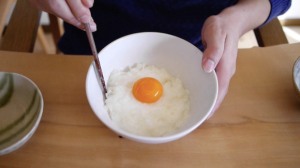I have come to the determination that I’m a very rude and inappropriate person.
Well, not really, but that is definitely how I feel when it comes to writing/speaking Japanese. I knew from the get-go that Japanese had different forms of speech etiquette(formal/polite/casual), but I had no idea how in-depth it would really end up being. Social situations dictate different forms of speech for different scenarios. Thus, understanding when and how to speak politely has been rough.
Let’s just take a look at probably the first phrase you should learn when studying Japanese: “Thank you”. ありがとう(arigatou) is the translation of thank you in Japanese, however, ありがとうございます(arigatou gazaimasu) also means thank you. The latter is just considered more polite, but in which social interactions is it appropriate to use just ありがとう instead of ありがとうございます? To be completely honest, I’m still not entirely sure.
Despite the title of this post, if there is one thing I hate in this world, it’s when people are rude for no reason, so, of course I don’t want to be perceived that way when that isn’t my intention at all. My natural instinct would always to talk politely, but then I’ll end up speaking to a small child like he/she is the CEO of where I work.
In English, we do have polite speaking mannerisms, but they are seldom used unless in the work environment. It’s completely normal for someone to just say “Thank you” or “Thanks” to a boss/teacher/customer and not face any form of reprimand for it. If they like to be polite on their own merit, then they may say “Thank you, sir/ma’am”, but not very many people will get upset if they don’t. It’s mainly personal preference. I personally enjoy speaking politely to strangers. It shows that you are an intelligent and respectful person. It could also be my military background that plays into this a bit as well. In the military, you are made quite aware that you better speak with respect when talking to an officer or higher rank, but honestly, I found it much more rewarding to speak respectfully to people even outside the military evironment.
I know this post has been a lot of word vomit, but I wanted to show, I wouldn’t say frustration, but difficulty in understanding which social situations dictate which form of speech etiquette that is required. As with anything, more understanding will come over time.
WORD OF THE DAY
Let’s mix things up a bit and do a phrase of the day instead. Since we learned a little about “thank you” today, let’s also learn about “I’m sorry/I apologize”. Just like “thank you”, “I’m sorry” has different levels of politeness, depending on social situations:
すみません(sumimasen) – this form of “I’m sorry” can be used in a wide variety of different situations. It’s not extremely formal, but it’s also not extremely casual either. It’s a happy medium and seems to be the form that is used the most.
申し訳ありません(moushiwake arimasen) – this is an extremely formal apology. This is the form you would use when talking to superiors and want to portray a very deep and formal apology.
ごめんなさい(gomennasai) – this is the casual form of “i’m sorry”. This is much less formal than the first two, so obviously if すみません(sumimasen) is too casual of a choice, you wouldn’t use ごめんなさい(gomennasai) since it’s even less formal. If you wanted to even make it more casual, it can be shortened to ごめん(gomen), but should only be used in very, very informal situations.

